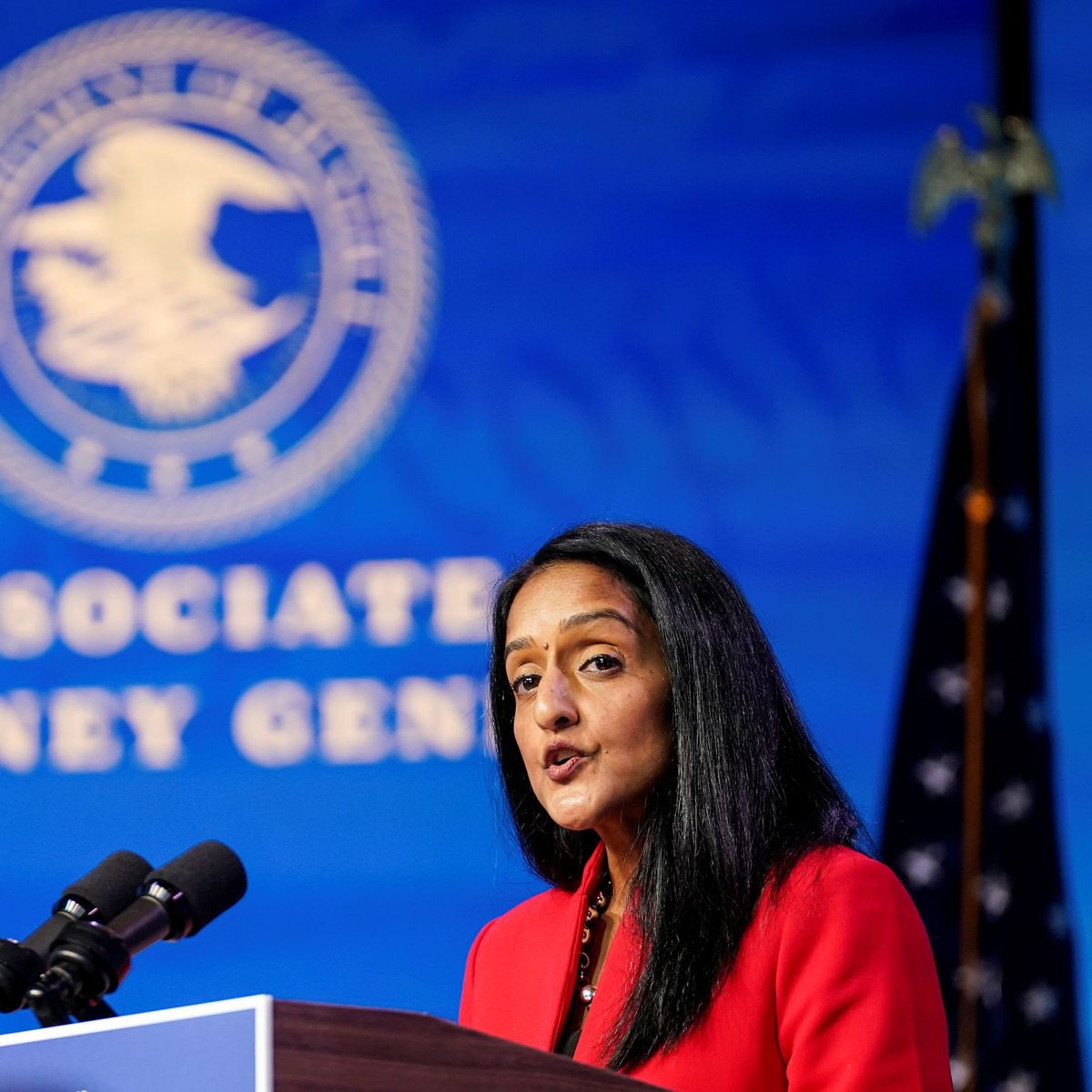Who is Vanita Gupta?

A few minutes every morning is all you need.
Stay up to date on the world's Headlines and Human Stories. It's fun, it's factual, it's fluff-free.
Gupta became the first woman of color to hold the position, the third-highest in the Department of Justice.
On Wednesday, April 21, the United States Senate narrowly confirmed Vanita Gupta as associate attorney general in a 51-49 vote. Gupta became the first woman of color to hold the position, the third-highest in the Department of Justice (DOJ). This is her second role in the DOJ, following her time as the head of the Civil Rights Administration from 2014 to 2017 under President Barack Obama.
Gupta has also held a variety of positions related to civil rights. Her legal career started with her time as an attorney for The National Association for the Advancement of Colored People (NAACP) Legal Defense & Educational Fund. While with the NAACP, Gupta was responsible for overturning the drug convictions of 38 innocent individuals in Tulia, Texas.
In 2006, Gupta joined the American Civil Liberties Union (ACLU) as a staff lawyer. After a series of landmark cases and campaigns, Gupta served as Deputy Legal Director and Director of the Center for Justice for the ACLU.
What is her role?
As explained on the Department of Justice’s official website, the associate attorney general’s main role is to advise and assist “the Attorney General and the Deputy Attorney General in formulating and implementing Departmental policies and programs.” Most notably, Gupta’s office will supervise the Civil and Civil Rights divisions.
Gupta’s role will be to police the police, overseeing civil litigation and law enforcement issues. Her confirmation came a day after the conviction of former police officer Derek Chauvin. Chauvin was found guilty of murdering George Floyd while on duty. The same day she was nominated, Attorney General Merrick Garland announced an investigation into the Minneapolis Police Department where Chauvin was employed.
In 2013, Gupta wrote an op-ed for The New York Times criticizing policing methods and injustices within the justice system. Gupta wrote that the “war on crime” was “dominated by antidrug policies and racial profiling fueled a prison-building binge that is morally — and now financially — bankrupt.” A majority of her work as a lawyer dealt with wrongful-incarceration issues.
Despite the opposition to policing methods, Gupta has a reputation of working well with police departments. The Fraternal Order of Police, who includes over 356,000 members, penned a letter expressing their support for Gupta. The letter, sent to the Senate Judiciary Committee, which conducts oversight of nominations, described an “ongoing collaborative dialog that reflected a working relationship” with Gupta. Gupta won the support of over a dozen law-enforcement groups nationwide.
How the Senate voted
Leading up to her nomination, many believed Gupta’s appointment would again be decided along party lines. Republicans expressed their opposition to Gupta, pointing to her harsh rhetoric concerning police and her past tweets directed at Republican leaders.
“I will strongly oppose confirming Vanita Gupta to serve as Associate Attorney General,” Senate Minority Leader Mitch McConnell said before the nomination vote. “Ms. Gupta has spent her career, in large part, as an activist for left-wing causes. Her work for high-profile liberal interest groups and the Obama Justice Department have left a record of astoundingly radical positions.”
Senator Ted Cruz also voiced his resistance to Gupta’s nomination. “Vanita Gupta is an extreme partisan ideologue,” he stated during Gupta’s nomination hearing, “with a long record of hostility toward religious liberty, law enforcement, and school choice.”
Cruz also accused Gupta of advocating for supporting the defunding the police campaign, a claim she denies. Cruz’s point followed attack ads run by conservative groups aimed at Gupta in the months leading up to her nomination. The Judicial Crisis Network spent US$800,000 on one ad claiming Gupta “supports defunding the police, [and] led a group that wants to reduce punishments on white supremacists, even terrorists.”
Despite the attacks and opposition from Republican leaders in the Senate, Gupta was confirmed without Vice President Kamala Harris needing to cast a tiebreaking vote. Gupta was able to sway Republican Senator Lisa Murkowski.
Murkowski decided to vote in favor of Gupta because of the “passion” she “carries with her with the work that she performs.”
Before the vote, the two women met to discuss the direction the DOJ would take under Gupta. Murkowski was particularly impressed with Gupta’s stance on domestic violence and sexual assault.
“I felt that I was speaking to a woman who had not only committed her professional life to try to get the base of these injustices, to try to not just direct a little bit of money, put a program in place, and walk away and call it a day,” Murkowski said, “But to try to make a difference.”
Have a tip or story? Get in touch with our reporters at tips@themilsource.com




Comments ()